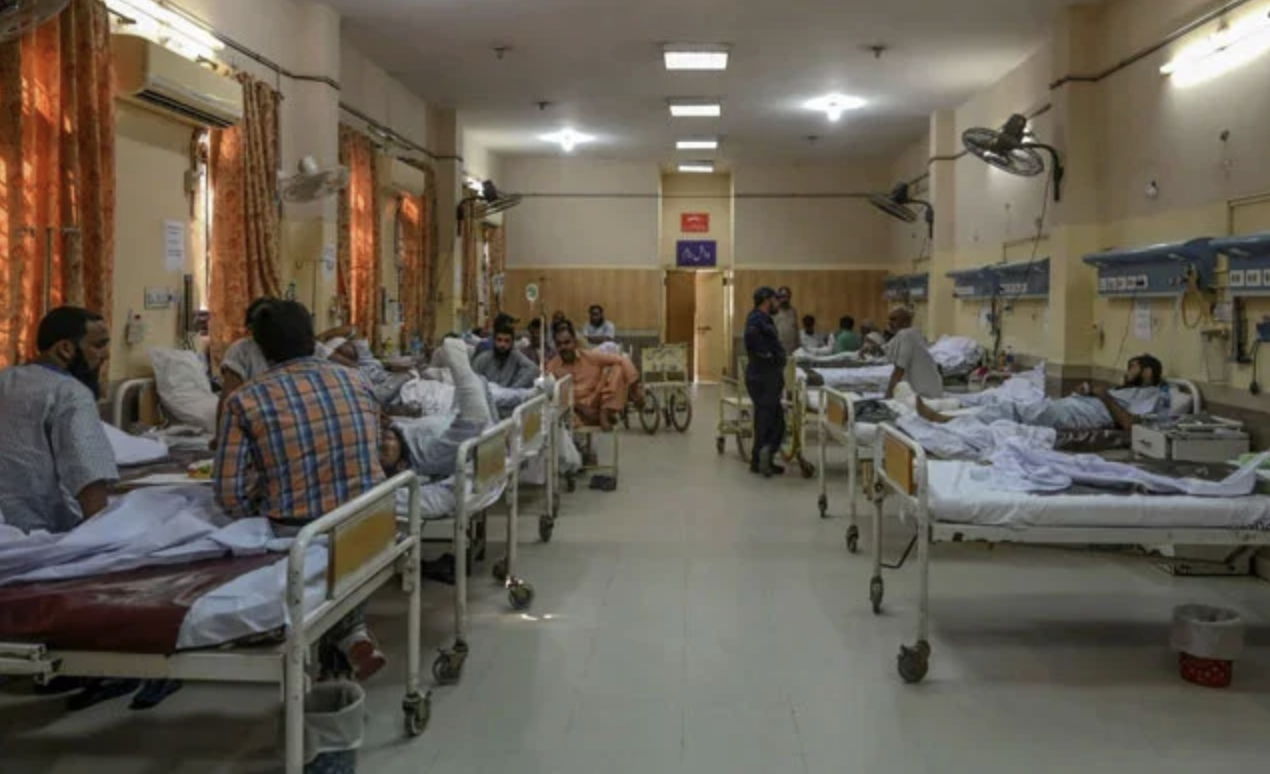Experts have proposed comprehensive reforms to Pakistan’s primary healthcare system, advocating for health taxes, a shift to prepayment financing, and increased public health spending to improve access and reduce financial burdens on households. The symposium emphasized the need for integrated services, community-level care, and greater involvement of women in decision-making roles to address emerging health challenges, particularly non-communicable diseases.
Health experts and leaders from federal, provincial, and global organizations have proposed significant reforms to revitalize Pakistan’s struggling primary healthcare (PHC) system. These recommendations emerged during the National Symposium on Primary Health Care: Foundation for Universal Health Coverage, which took place in Karachi as part of the PHC Learning Agenda initiative led by the Aga Khan University (AKU) with support from the Bill & Melinda Gates Foundation.
Key proposals from this symposium include implementing health taxes on tobacco, sugary beverages, and unhealthy food, transitioning to tax-based and insurance-backed financing models, and doubling public health spending to 2% of GDP by the mid-2030s. Experts emphasized the necessity of moving away from out-of-pocket payments toward prepayment systems to alleviate financial burdens on households.
Furthermore, provinces were encouraged to adopt performance-based financing with robust contract management, while the federal government was urged to co-create a national PHC strategy that aligns with Universal Health Coverage (UHC) and the Sustainable Development Goals (SDGs).
Dr. Sana Hyat from AKU outlined solutions such as scaling up strategic purchasing, applying quality improvement initiatives, and developing a nationwide electronic medical records (EMR) system for all PHC facilities. She highlighted the importance of utilizing Burden of Disease (BoD) data to inform health planning and decision-making, advocating for enhanced local capacity to effectively implement this data in practice.
The symposium also called for greater integration between health and population welfare departments to manage rapid population growth and improve access to family planning services. Experts stressed the importance of ensuring that more women occupy decision-making roles, particularly as district health officers (DHOs). The conference suggested establishing new urban PHC networks through public-private partnerships to better serve underserved communities.
A special presentation by Dr. Ali Mokdad, chief strategy officer for population health at the University of Washington’s Institute for Health Metrics and Evaluation, revealed critical insights from the Global Burden of Disease (GBD) 2023 study. He noted that while Pakistan has made health strides since 1990, it continues to face severe challenges, particularly from non-communicable diseases (NCDs) such as diabetes and cardiovascular diseases, which have surpassed infectious diseases as the primary health burden. Dr. Mokdad emphasized the urgent need for investments and policies to address these issues through strong primary care and community interventions.
Federal Minister for Health Dr. Malik Mukhtar Ahmad Bharath echoed these sentiments by advocating for a shift in focus from hospitals to community-level care, recognizing that the foundation of health lies in primary care. He warned that Pakistan would lose GAVI support by 2031, thus emphasizing the immediate need for local vaccine production and enhanced health financing mechanisms.
Recent advances in telemedicine, digitization of health systems, and local vaccine delivery were also highlighted. Provincial leaders shared their experiences and challenges. Sindh Health Minister Dr. Azra Fazal Pechuho discussed the expansion of the Lady Health Worker program and integration of telemedicine for rural outreach. Balochistan’s Minister Bakht Muhammad Kakar noted a significant increase in the province’s health budget, emphasizing the need for primary care due to vast geographical challenges. Khyber Pakhtunkhwa’s representative, Ihtesham Ali, reported reduced political interference in health appointments and ongoing performance reviews to enhance accountability.
The symposium concluded with Prof. Dr. Sameen Siddiqi, who stressed that PHC reform is both a technical necessity and a moral imperative, outlining core priorities such as integrating population and health services, addressing NCDs, fostering public-private partnerships, and increasing domestic financing. “This is our moment,” Prof. Siddiqi declared, emphasizing the urgency of advancing primary health care in Pakistan.


